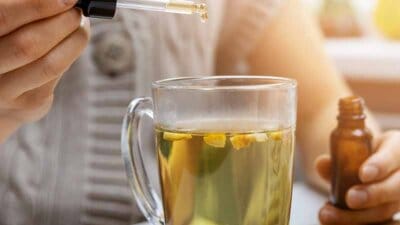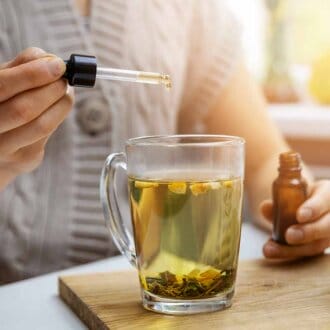Kratom has been making some big waves lately. If you’re curious about what’s up with this Southeast Asian plant, you’re not alone. Sadly, there’s a lot of misinformation out there about what Kratom is, what it does, and how. Our plant supplement experts at Kats Botanicals are here to break down the essential information. We’ll debunk some common Kratom myths and share some Kratom facts that will help you separate fact from fiction.
Key Takeaways
Because who doesn’t love a good TL;DR, right?
- Is Kratom regulated? Status: It’s complicated.
- The FDA hasn’t given Kratom its stamp of approval. Why?
- Kratom’s legal status: It’s very complicated.
- Like other psychoactive botanicals, Kratom does have its pros and cons. We’ll be upfront about these Kratom facts.
- Staying in the know is your best bet for making smart choices. We’ll share how you can stay on top of the ever-changing landscape of the Kratom industry.
- Oh yeah, and we’ll debunk what needs to be debunked!
What Is Kratom?
First off, what exactly is Kratom? Is it really the next big thing for chronic discomfort sufferers? I’ve heard it may be addictive; is that true? I’ve heard they’re gonna ban Kratom everywhere. Is that right? Before we can get into all this, let’s take a look at what Kratom is. Also called Mitragyna speciosa, Kratom comes from a Southeast Asian tree that’s part of the coffee family. The leaves contain natural compounds (called alkaloids) that make them special – mainly Mitragynine and 7-Hydroxymitragynine.
You’ll find Kratom products in a few different forms:
- Kratom Tea (for the traditional approach).
- Kratom Powder (mix it with your favorite non-carbonated drink).
- Kratom Capsules (if you’re not a fan of the taste).
- Kratom Extracts (the concentrated version).
- Kratom Gummies (if you’re the more adventurous type).
Is Kratom Regulated?
Depending on where you live, Kratom may be regulated strongly, loosely, not at all, or somewhere in a murky, gray area. Some countries have banned Kratom outright, citing many reasons or uncertainties associated with Kratom. So far, the US has not banned the substance, but there’s undoubtedly a lack of regulation.
That might surprise you, given how the American Kratom Association (AKA) has reported Kratom use by over 15 million Americans in their daily routine, with 55% of those folks taking Kratom multiple times a day. Back in 2016, the Drug Enforcement Administration (DEA) planned to classify Kratom as a controlled substance, but something interesting happened. People spoke up (loudly), scientists called for more research, and the DEA decided to hold off. So, where does that leave us? Right now, at the federal level, Kratom appears to be stuck in regulatory traffic – not moving forward or backward.
Is Kratom Regulated by the FDA?
Kratom is currently not regulated by the FDA, which means the FDA isn’t offering much by way of federal guidelines or advice on its use. In fact, the FDA isn’t sitting on the fence about Kratom either. They are watching the Kratom industry bloom and occasionally issuing statements on their concerns (murky safety profile, lack of research, etc.), but that’s about it. While the FDA takes its firm “hands off” stance, the states are left to decide if they choose to do the same or not.
Did you know: The American Kratom Association fights for clean standards in Kratom manufacturing and advocates for your safety (and your right) to use Kratom? Kats Botanicals is proud to be an approved vendor of the AKA. If you are interested in Kratom advocacy, here is where you can learn more about the AKA.
Is Kratom Federally Regulated?
At this time, no. This means that lawmakers at the federal level have not banned Kratom country-wide, leaving the decision-making up to the states, municipalities, counties, cities, etc., trusting the local lawmakers to determine what’s best for their constituents. This underscores the importance of doing your due diligence as a consumer and looking into any laws about Kratom that apply to you.
Let’s take a quick look at how the states balance two often conflicting goals, consumer rights vs consumer safety. And don’t worry, we’ll cover this very briefly…remember, we’ve got some Kratom myth-busting to do!
State and Local Kratom Regulations
This is where it gets interesting regarding the sale and use of Kratom products in the U.S.. Different states have their own takes on Kratom, making it a bit like a patchwork quilt of regulations.
States that say no – as of early 2025, you won’t find legal Kratom in:
- Alabama
- Arkansas
- Indiana
- Rhode Island
- Vermont
- Wisconsin
As laws can change faster than your smartphone updates, we recommend always double-checking what’s current in your area.
Kratom Legality and Consumer Safety
Some states are leading the charge regarding Kratom legality vs consumer safety, using a more proactive approach by creating special laws called Kratom Consumer Protection Acts, or KCPAs. These laws aim to ensure the quality and safety of Kratom products and to make sure that all Kratom products are properly labeled. These states include:
- Arizona
- Georgia
- Nevada
- Oklahoma
- Utah
For more details, be sure to read up on the legality of Kratom.
Is Kratom Regulated by Age?
In many states, there are age limits for the purchase and use of Kratom products or products infused with Kratom alkaloids. If you’re thinking of buying Kratom, research the age requirements where you live or buy Kratom. Most age limit restrictions are 18 or 21 years.
Now, let’s get to something you’ve been waiting for – the debunking! Buckle up. It’s about to get really real.
8 Common Myths About Kratom Debunked
Below we’ve tackled some of the most persistent Kratom myths and provided the real Kratom facts. You’ll learn what’s fiction vs fact about Kratom’s health effects, the status of Kratom, and some of the risks associated with Kratom ingestion.
Kratom Myth #1: Kratom Is Illegal Everywhere
Kratom is NOT illegal everywhere. In fact, Kratom is a legal substance to use throughout most of the globe. The Kratom market in the US is thriving with high revenue and support. A 2021 AKA report on The Human and Economic Impacts of the Kratom Industry in the United States reports the following Kratom facts:
“The U.S. Kratom industry generates an estimated $1.3 billion in sales and accounted for a total 7,660 jobs, $404.5 million in labor income and contributed a total of $606.2 million to U.S. GDP. In addition, the Kratom industry generated a total of $150 million in federal, state and local taxes.” (See the full AKA Report).
This tells us that there is quite a healthy Kratom market in the US!
Kratom Myth #2: Kratom Is FDA-Approved
Sadly, no. The FDA’s backing could bring more awareness to the proper use of Kratom, inspire more research and funding for Kratom studies, and make it more accessible as a holistic care substance for the people who need it. Many people assume that because they see a Kratom product for sale in a store that the FDA has approved it already. In fact, this is the case with many botanicals. The anecdotal evidence and decades (even centuries of use) drive public interest, but the FDA is slow to get on board.
Remember how long it took for mainstream medicine to accept CBD, despite its nearly nonexistent risks or side effects? Thankfully, a wide variety of CBD products are available on the market today, including some FDA-approved CBD medications.
Kratom Myth #3: Kratom Has No Scientific Research Behind It
Although Kratom research is relatively young, it does exist. Kratom scientific research (as with CBD) would discover many aspects of Kratom, like:
- Identifying the active compounds in Kratom.
- Kratom’s efficacy for therapeutic uses and what those are.
- Analyzing the alkaloids and their bioactivity within the human body.
- Tackling a particular safety concern associated with Kratom use. (Like: What happens with chronic Kratom use? How do the dose-dependent psychoactive effects work? What is the risk of overdose and serious side effects?)
- Exploring other areas of scientific curiosity about how Kratom affects your health.
Mitragynine, for example, was first isolated in 1921 by Ellen Field, a medicinal chemist at the University of Edinburgh. Mitragyna speciosa has interested scientists for many decades. Consumer interest has simply outpaced the research.
Kratom Myth #4: All Kratom Products Are the Same
Well, no. In fact, they are widely varied! Here’s why:
- Kratom trees grow in a variety of places throughout Southeast Asia.
- Each region contributes a difference in the soils, weather patterns, and care the Kratom plants receive.
- This affects the color venation of the Kratom leaves, the alkaloids the Kratom leaves contain, and the flavonoids each offers.
- Therefore, flavor and experience vary widely by plant makeup.
The combinations of color venation, regional strains, processing methods, and product formation mean there are endless creative ways to make a unique Kratom product.
And we can prove it… Check out our Kratom Strains Comparison Chart to see!
Kratom Myth #5: Kratom is a Synthetic Drug
Another topic we have loads to say about. Kratom is a natural substance, produced perfectly by Mother Nature. Here at Kats Botanicals, we feel natural Kratom, native to Southeast Asia, is best. No, Kratom is not a synthetic drug, but this doesn’t mean there aren’t some bad apples in the Kratom industry producing synthetic alkaloids to jazz up their products or to create buzz-worthy selling tropes.
Read more about synthetic Kratom you should stay far, far away from and how you can spot it!
Kratom Myth #6: Kratom Is Highly Addictive Like Opioids
Kratom may be habit-forming for some users. This misconception likely comes from how Kratom alkaloids act in the body.
- Kratom’s alkaloids are partial mu opioid receptor agonists.
- It may not be suitable for those who have a history of addiction or for those who take some types of medications. Be sure to check with your doctor before use to understand any potential drug interactions.
Kratom is used by a broad scope of people successfully, but using Kratom properly is key. Overusing Kratom leads to a risk of developing tolerance, substance abuse, or even Kratom withdrawal symptoms, so we always advise people to use Kratom responsibly.
To help you do this, refer to our Kratom dosage article to guide you through an assisted Kratom regimen.
Kratom Myth #7: Kratom Has No Legitimate Uses
This simply isn’t true. Yes, Kratom may influence your body and mind differently than it does another person (botanicals can be like that), but there are some common beneficial effects of using Kratom.
Here’s what’s caught people’s attention. In Southeast Asia, workers have used Kratom leaves for centuries – kind of like how we might grab a coffee before a busy day. They’d brew Kratom tea or chew the leaves when they needed an extra boost. This produced interest and subsequently a booming market in the U.S. for Kratom, thanks to an attractive suite of potential Kratom benefits.
These days, people try Kratom for all sorts of reasons.
For the body:
- Easing those “I worked out too hard” moments.
- Getting through the afternoon slump.
- Promoting a restful night’s sleep.
- Dealing with tension or muscle aches after a long day at the computer or work.
For the mind:
- Managing those “too many deadlines” feelings.
- Staying focused when your to-do list is overwhelming.
- Feeling more comfortable in social situations.
Some folks also turn to Kratom when trying to quit opioids. But that’s some serious business that needs a doctor’s help. Don’t go it alone on your journey toward recovery or for any mental health issues.
Kratom Myth #8: Kratom Is Completely Safe with No Side Effects
Let’s be honest about what you might experience. Everyone’s body is different in the effects Kratom produces.
You might notice:
- Your energy levels might go up or down.
- Your stomach might have some opinions about it.
- Your sleep patterns could change.
- Your well-being might shift.
Watch out for:
- An unhappy stomach (keep ginger tea handy).
- Not feeling hungry when you should be.
- Needing more water than usual.
- Your body might get used to it (tolerance).
- It can be habit-forming for some people.
- It might not play nice with your medications.
Your body is unique. What works for your gym buddy might make you feel “off”. That’s why it’s super important to take it slow when you start taking Kratom, and do so with your doctor’s guidance!
The Truth About Kratom: What You Should Know
Now that you’re “in the know” about Kratom facts vs fiction, where can you find more info about this amazing and versatile botanical?
Finding Reliable Kratom Facts
Let’s talk about getting trustworthy information about Kratom. While there’s plenty of chatter online, you’ll want to focus on credible sources. Use “Google Scholar” when you search for Kratom facts, and look for scientific resources, collegiate studies, or new findings in Kratom research. While scientific papers aren’t exactly easy reading, they’re your best bet for accurate information.
Examples of quality sources:
- University of Florida College of Pharmacy: Conducts research on Kratom, providing scientific data and resources about its properties and effects.
- National Center for Complementary and Integrative Health (NCCIH): Summarizes scientific findings on Kratom’s safety, effects, and potential therapeutic uses.
- National Institute on Drug Abuse (NIDA): Offers research-based insights into Kratom’s effects, usage patterns, and potential health implications.
- U.S. Food and Drug Administration (FDA): Provides updates on regulatory status, safety concerns, and advisories related to Kratom products.
- Drug Enforcement Administration (DEA): Details the legal status, potential for abuse, and pharmacological effects of Kratom.
Staying Current with Kratom Regulations
Kratom laws and regulations change frequently. Set up a quarterly reminder to review current regulations in your area. What’s legal today might not be tomorrow, and you’ll want to stay ahead of any changes.
- Review your state’s controlled substances website.
- Monitor local government announcements.
- Follow updates from consumer protection agencies.
Having the Healthcare Conversation
Being upfront with your healthcare provider about Kratom is crucial. To make that conversation more productive, write down your list of current medications and any Kratom products you are taking, and note any questions you’d like to ask your healthcare professional.
Your doctor can help you:
- Understand potential interactions with your medications.
- Identify specific risks based on your health history.
- Find alternatives if Kratom isn’t right for you.
Getting High-Quality Kratom You Can Trust
Kratom isn’t a simple yes-or-no situation. It’s more like a “proceed with caution” deal. While some people swear by it, others want nothing to do with it. Plus, Kratom misinformation is rampant. What is your best bet? Stay informed on the Kratom facts, play it safe, and make choices based on solid info rather than hype.











